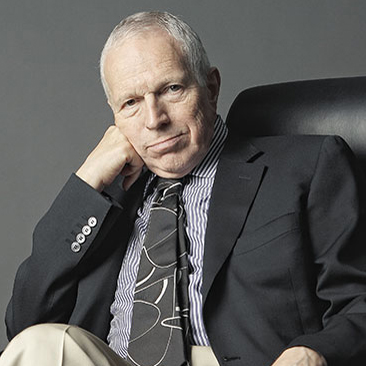Edmund Phelps was born in 1933 in Evanston, Ill., spent his childhood in Chicago and, from age six, grew up in Hastings-on-Hudson, N.Y. He earned his B.A. from Amherst in 1955 and his Ph.D. from Yale in 1959. He is McVickar Professor of Political Economy at Columbia University, Director of Columbia’s Center on Capitalism and Society, and the winner of the 2006 Nobel Prize in Economics.
Edmund Phelps' career began with a stint at the RAND Corporation. Back east in 1960, he held appointments at Yale and its Cowles Foundation until 1966, then a professorship for five years at Penn. In 1970 he moved to New York and joined Columbia in 1971. Phelps’s work can be seen as a program to put "people as we know them” back into economic models – to take into account the incompleteness of their information and their knowledge and to study the effects of their expectations and beliefs on the workings of markets. He has adopted this perspective in studying unemployment and inclusion, economic growth, business swings and economic dynamism.Phelps was elected a Fellow of the National Academy of Science in 1982 and made a Distinguished Fellow of the American Economic Association in 2000.
In 2008 Edmund Phelps was named Chevalier of the Legion of Honor and was awarded the Premio Pico della Mirandola for humanism and the Kiel Global Economy Prize. In the same year the University of Buenos Aires Law School Established the Catedra Phelps for Programs on Dynamism and Inclusion. He holds many honorary doctorates and several honorary professorships. An extraordinary tribute occurred when scholars came from around the world for a large Festschrift conference in his honor just three weeks after 9/11.
Edmund Phelps' career began with a stint at the RAND Corporation. Back east in 1960, he held appointments at Yale and its Cowles Foundation until 1966, then a professorship for five years at Penn. In 1970 he moved to New York and joined Columbia in 1971. Phelps’s work can be seen as a program to put "people as we know them” back into economic models – to take into account the incompleteness of their information and their knowledge and to study the effects of their expectations and beliefs on the workings of markets. He has adopted this perspective in studying unemployment and inclusion, economic growth, business swings and economic dynamism.Phelps was elected a Fellow of the National Academy of Science in 1982 and made a Distinguished Fellow of the American Economic Association in 2000.
In 2008 Edmund Phelps was named Chevalier of the Legion of Honor and was awarded the Premio Pico della Mirandola for humanism and the Kiel Global Economy Prize. In the same year the University of Buenos Aires Law School Established the Catedra Phelps for Programs on Dynamism and Inclusion. He holds many honorary doctorates and several honorary professorships. An extraordinary tribute occurred when scholars came from around the world for a large Festschrift conference in his honor just three weeks after 9/11.

